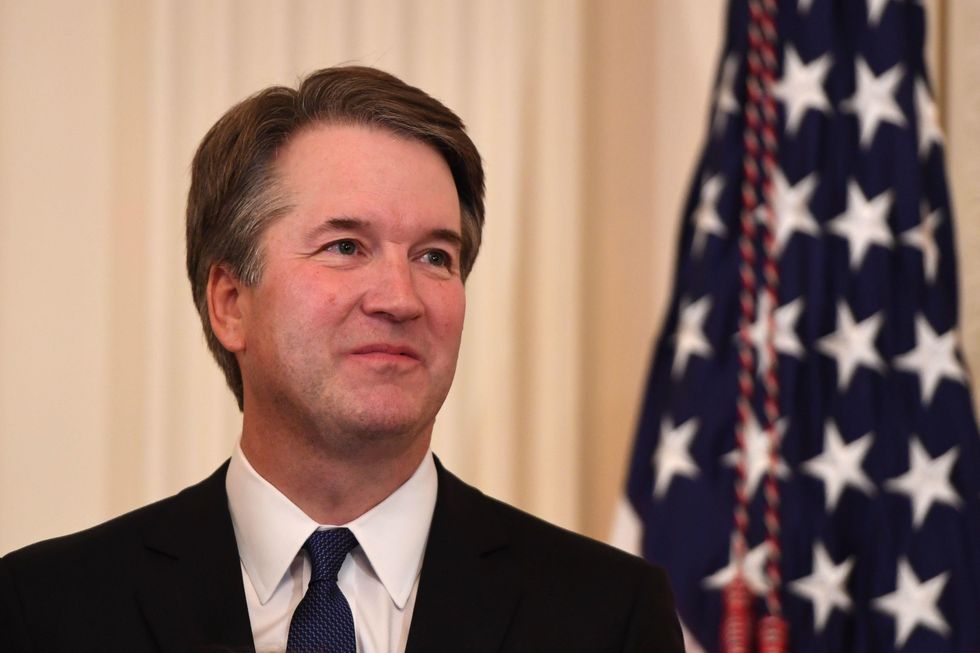
Supreme Court nominee Brett Kavanaugh succinctly explained his judicial philosophy during his nomination acceptance speech, invoking the Constitution and judicial restraint. (Saul Loeb/AFP/Getty Images)

Supreme Court nominee Brett Kavanaugh will certainly face months of scrutiny by senators who are unsure of whether to support his nomination. But if Kavanaugh's acceptance speech is any indication of what type of Supreme Court justice he will be, conservatives and judicial purists will be more than satisfied.
Speaking from the White House just after President Donald Trump formally announced his nomination, Kavanaugh invoked the Constitution's framers, spoke about the importance of judicial restraint, and pledged to interpret the Constitution as it was written.
Kavanaugh, 53, began his short speech by thanking Trump for displaying confidence in him, noting he was humbled by the nomination. Kavanaugh said he is "honored" to fill retiring Justice Anthony Kennedy's shoes on the nation's highest court.
"Thirty years ago, President Reagan nominated Anthony Kennedy to the Supreme Court. The framers established that the Constitution is designed to secure the blessings of liberty. Justice Kennedy devoted his career to securing liberty. I am deeply honored to be nominated to fill his seat on the Supreme Court," he said.
Kavanaugh then wasted no time getting down to brass tacks, succinctly explaining his judicial philosophy.
"My judicial philosophy is straightforward. A judge must be independent and must interpret the law, not make the law. A judge must interpret statutes as written. And a judge must interpret the Constitution as written, informed by history and tradition and precedent," Kavanaugh said.
"For the past 11 years, I’ve taught hundreds of students, primarily at Harvard Law School. I teach that the Constitution’s separation of powers protects individual liberty, and I remain grateful to the dean who hired me, Justice Elena Kagan," he added.
Kavanaugh, who will begin meeting with senators Tuesday, went on to boldly declare his reverence for the Constitution, an ideal he said he will ensure each senator understands.
"Tomorrow, I begin meeting with members of the Senate, which plays an essential role in this process. I will tell each senator that I revere the Constitution," Kavanaugh said. "I believe that an independent judiciary is the crown jewel of our constitutional republic. If confirmed by the Senate, I will keep an open mind in every case and I will always strive to preserve the Constitution of the United States and the American rule of law."
The answer to that question remains unclear. However, Democrats and progressive activist groups are already working overtime to protest Kavanaugh's nomination, citing his conservative views and philosophy that justices should not legislate from the bench.
Senate Minority Leader Chuck Schumer (D-N.Y.) has already vowed to oppose Kavanaugh's nomination, despite not yet meeting with him.
The process will likely take months as Kavanaugh personally meets with each senator to answer questions and address concerns each lawmaker has with his judicial history. Still, Trump and Republicans hope to complete the process sometime before the midterm elections.
Kavanaugh has served on the U.S. Circuit Court of Appeals for the District of Columbia since 2006. The Senate confirmed him to that position with some bipartisan support; the vote was 57 for and 36 against.